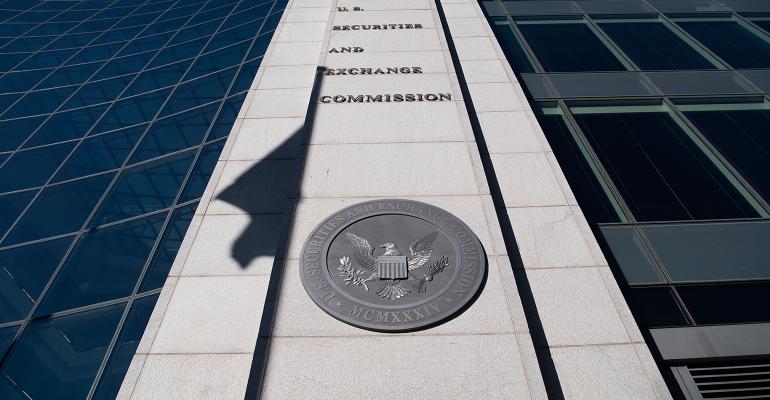(Bloomberg) -- Top Justice Department antitrust officials are taking the unusual step of urging Wall Street’s main regulator to proceed with caution on a suite of proposals to overhaul the plumbing of equities markets.
The US Securities and Exchange Commission in December unveiled plans for the most sweeping overhaul of Wall Street stock-trading in more than a decade through a series of four proposals. Many industry players have called on the financial regulator to consider how the various proposals interconnect with each other before moving forward, with some asking the SEC to phase in the rules slowly or not move forward with some of them at all.
The proposals include changes to the price increments in which stock trades can be quoted and changes to brokerage and exchange fees and rebates, as well as an auction structure for retail trades.
Now the Justice Department is adding its voice. Its letter, made public Thursday, praises the SEC for trying to foster greater competition for executing retail trades and pulling more trades onto exchanges and away from being internalized by wholesale trading firms like Citadel Securities and Virtu Inc.
‘Best Execution’
But the agency’s antitrust division asked the SEC to consider the potential impacts, such as whether smaller pricing increments could increase competition between exchanges and wholesalers to execute trades, and whether that might affect brokers’ willingness to route orders to wholesalers as part of their duty to get “best execution” for a customer’s trade.
If both the order competition and the best-execution proposals are adopted, brokers’ “best execution policies and procedures will have to take into account auctions conducted pursuant to the Order Competition Rule and consider the competitive dynamics of those auctions compared to other ways to execute clients’ orders,” according to the letter signed by Jonathan Kanter, assistant attorney general for antitrust.
The antitrust chief also asked the SEC to carefully consider the potential for new rules for market data infrastructure (MDI), which have yet to go into effect, to alter trading behavior.
“The effects of the MDI Rule on equities trading are uncertain,” Kanter said. Finalizing the rules might have different effects on competition that the SEC originally contemplated, he said.
The SEC didn’t respond to an e-mailed request for comment.
Late Thursday in Washington, the Justice Department’s antitrust division said in a follow-up statement that it fully supports the proposed trading rules. “Our comment commends the Commission’s work and notes the strong basis to believe that finalizing the rules would benefit competition,” the unit said.
Following a 2021 White House executive order on promoting competition across the US economy, the Justice Department’s antitrust lawyers have taken a more active approach when assessing the implications of the work of other federal regulators.
The order urged US agencies to focus on improving competition within dozens of industries and created a Competition Council, which includes the SEC, that meets every six months to encourage collaboration.
Industry Reaction
The auctions and best-execution proposals have been roundly criticized by many industry players, including wholesalers, brokers like Robinhood Markets Inc. and exchanges such as Nasdaq.
They’re not without supporters, however. A host of public pension funds, including CalPERS and the Ontario Teachers’ Pension Plan, support the SEC’s idea to let traders quote stocks at sub-penny increments and overhauling the fees and rebates exchanges provide.
“The existing system clearly disadvantages institutional investors,” which pay a disproportionate number of exchange fees, the group said in its March 31 comments.





